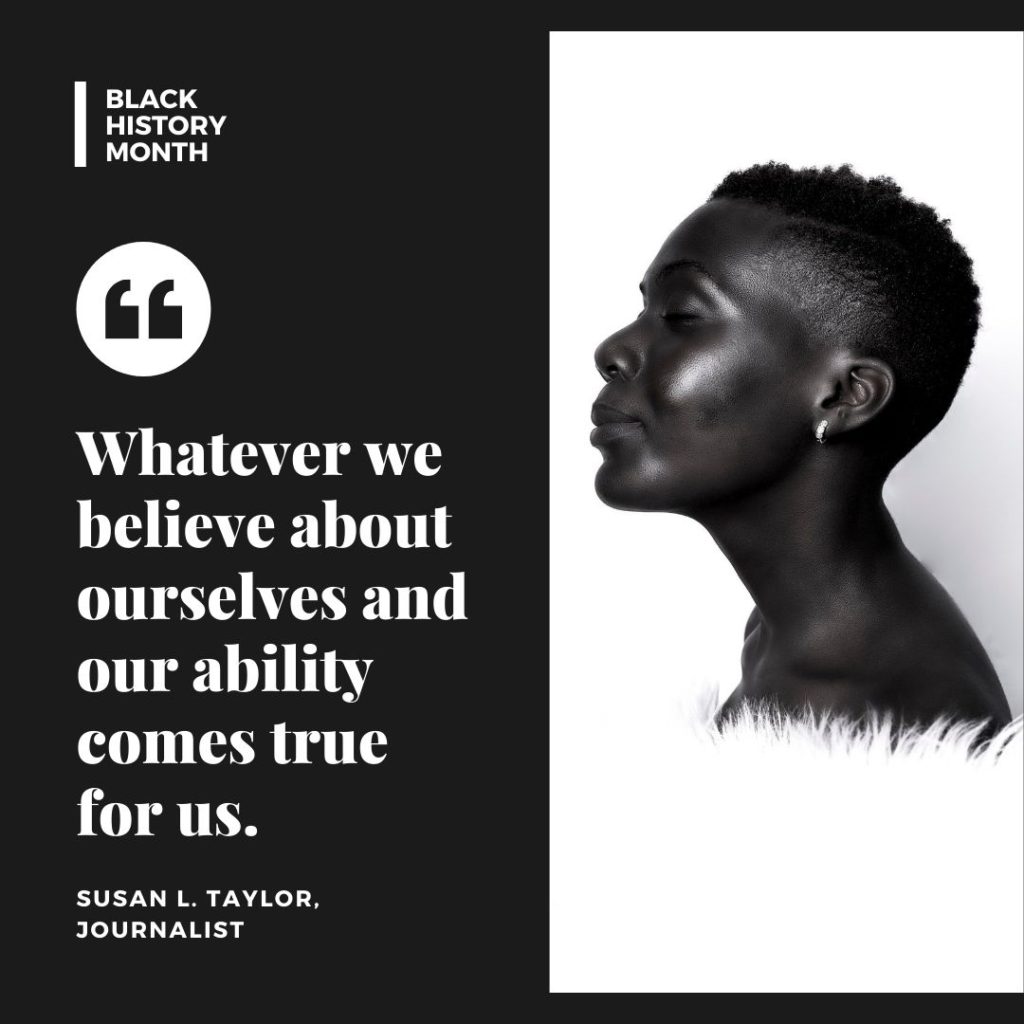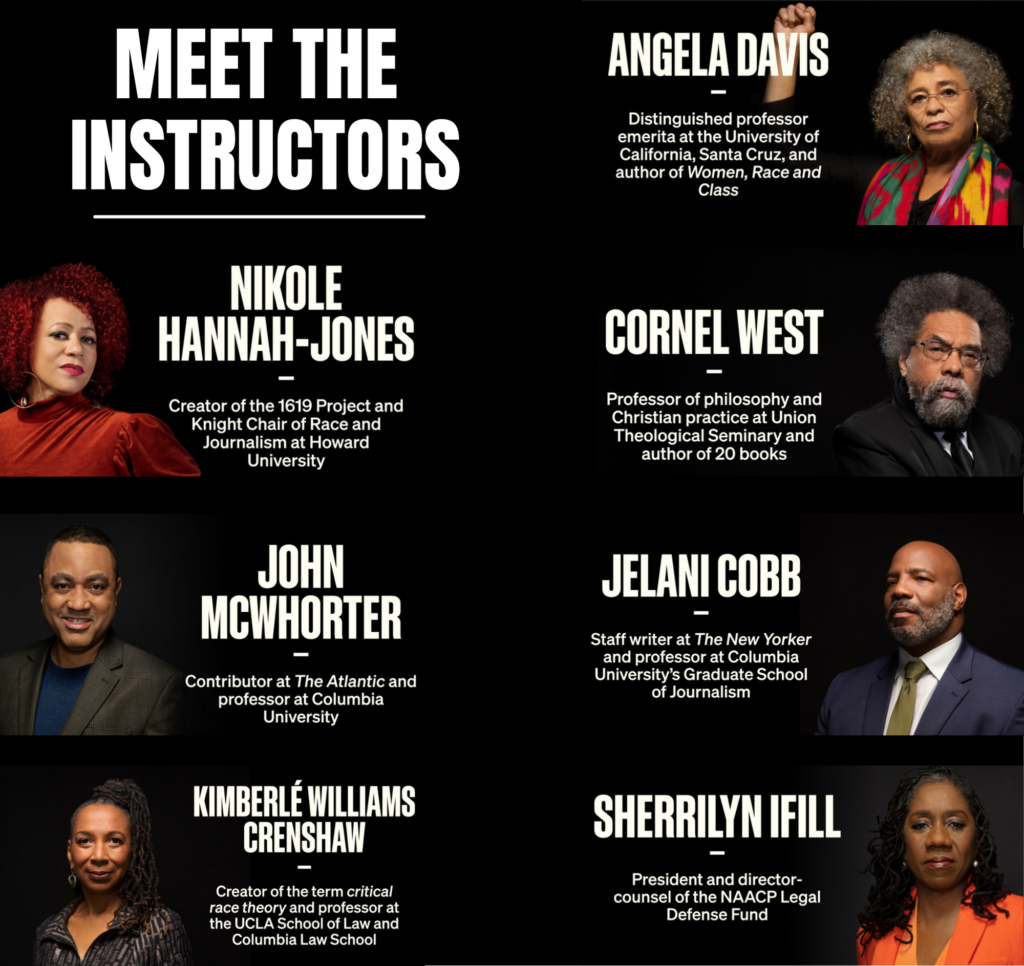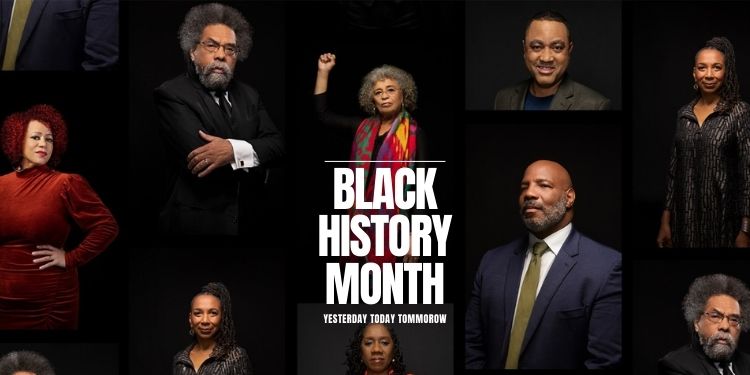MasterClass Commemorates Black History Month by Making ‘Race in America’ Course Accessible to Public
“With decades of experience, these leaders, activists and groundbreaking thinkers have reshaped conversations on race in America,” said David Rogier, founder and CEO of MasterClass.
From Angela Davis to Nikole Hannah-Jones, Black scholars and activists have dedicated their lives to unearthing, examining and amplifying truths about racism and how it shaped the Black experience in America. A collective of thought leaders in the social justice space has brought their perspectives to MasterClass through a course dubbed “Black History, Black Freedom, and Black Love.”

The class, which will be made accessible to the public for free throughout February to commemorate Black History Month, made its debut in December 2021. Led by revered Black intellectuals—including Davis, Hannah-Jones, Cornel West, Sherrilyn Ifill, Kimberlé Williams Crenshaw, John McWhorter and Jelani Cobb—the course sits at the intersection of history and culture; giving a lens into how slavery and racism have shaped present-day social and political landscapes and actionable steps individuals can take to lead transformative change and cultivate equitable communities in the future.
The first part of the course explores the correlation between American capitalism and enslavement, the 14th amendment, voter suppression and the fight for equity in education. The second installment captures the legacy of lawyer, activist and former Associate Justice of the Supreme Court of the United States Thurgood Marshall, examining the landmark Brown v. Board of Education case and where it stands within the debate around critical race theory. The third part of the course, which launched on February 1, focuses on what can be done to shape the future, challenging viewers to activate their activism to create a just society. Collectively the MasterClass encompasses 50 lessons that illustrate Black resilience in the face of oppression.
“With decades of experience, these leaders, activists and groundbreaking thinkers have reshaped conversations on race in America,” David Rogier, founder and CEO of MasterClass, shared in a statement. “Together, they will teach Black history as never before—uncensored—and show members how to build a society that honors Black voices, love and joy while fighting against systemic racism.”
Williams Crenshaw told NBC News the course would be used as a tool for powerful transformation.
“It is a way to reach the public and a population we don’t otherwise reach,” she said. “You can cut away all the mythology and the mass distribution of misinformation. We don’t have people talking past each other. You can sit down, dig in and learn.”
The “Black History, Black Freedom, and Black Love” course is part of MasterClass’ larger $2 million commitment to create and curate content centered on systemic racism and social justice. Different platforms and institutions have unveiled projects focused on ensuring the masses are informed about critical parts of Black history that are often left out of textbooks. In 2021, the Smithsonian National Museum of African American History and Culture announced it would digitize its exhibitions. The institution recently unveiled an initiative dubbed the Searchable Museum. Through the platform, individuals can virtually explore a collection of videos, photographs and interactive narratives. Among the exhibitions is “Slavery & Freedom,” which gives an in-depth lens into the harrowing experiences of enslaved people. This project explores the journeys of unsung African American trailblazers and stories that examine how current issues surrounding things like healthcare, land ownership, education and law are directly correlated to historic social injustices.

Kevin Young—who serves as the museum’s director—says the digitization of the institution’s content will be instrumental in making education about significant parts of history more accessible.
“I used to talk about the digital future, but it’s really the digital present,” he said in a statement, according to the news outlet. “We’re bringing the museum beyond its four walls. It’s like a museum in your pocket. The goal was really to think about how we could bring history in your hands. I really think the experience of going to the museum is transformative. What we wanted out of the site is something transformative as well.”









